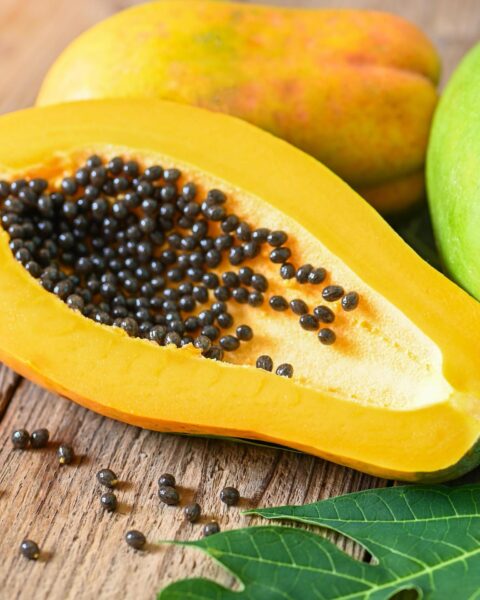Pumpkin, a versatile and iconic fall vegetable, is not only a symbol of Halloween but also a nutritional powerhouse with numerous health benefits. Packed with essential vitamins, minerals, and antioxidants, pumpkin offers a range of advantages for your overall well-being. In this article, we’ll explore nine impressive health benefits of incorporating pumpkin into your diet.
- Rich in Nutrients:
Pumpkin is a nutrient-dense food, meaning it provides a substantial amount of vitamins and minerals with relatively low calories. It’s an excellent source of vitamin A, vitamin C, potassium, and fiber, all of which play crucial roles in supporting various bodily functions.
- Boosts Immunity:
The high vitamin C content in pumpkin contributes to a robust immune system. Adequate vitamin C intake is essential for the production of white blood cells, which help the body fight off infections and illnesses. Including pumpkin in your diet can give your immune system the extra support it needs, especially during flu season.
- Supports Eye Health:
Beta-carotene, a precursor to vitamin A, is abundant in pumpkin. Vitamin A is essential for maintaining healthy vision, and a deficiency can lead to night blindness and other eye-related issues. Consuming pumpkin regularly can contribute to optimal eye health and help prevent age-related macular degeneration.
- Aids in Weight Management:
Pumpkin is low in calories and high in fiber, making it an excellent addition to a weight management plan. The fiber content helps you feel full for longer periods, reducing the likelihood of overeating. Additionally, the natural sweetness of pumpkin can satisfy sweet cravings without the need for added sugars.
- Heart-Healthy:
The potassium content in pumpkin is beneficial for heart health. Potassium helps regulate blood pressure by counteracting the effects of sodium, thus reducing the risk of stroke and heart disease. Including pumpkin in a well-balanced diet can contribute to maintaining a healthy cardiovascular system.
- Regulates Blood Sugar Levels:
The fiber in pumpkin not only aids in weight management but also helps regulate blood sugar levels. Fiber slows down the absorption of sugar, preventing spikes and crashes in blood sugar. This is particularly beneficial for individuals with diabetes or those at risk of developing the condition.
- Anti-Inflammatory Properties:
Pumpkin contains antioxidants, including beta-carotene and other carotenoids, which possess anti-inflammatory properties. Chronic inflammation is linked to various health issues, such as arthritis and heart disease. Including pumpkin in your diet may help reduce inflammation and promote overall health.
- Supports Digestive Health:
With its generous fiber content, pumpkin promotes a healthy digestive system. Fiber adds bulk to the stool, preventing constipation and promoting regular bowel movements. A well-functioning digestive system is essential for nutrient absorption and overall gut health.
- Enhances Skin Health:
The vitamins A and C, as well as antioxidants present in pumpkin, contribute to healthier skin. These nutrients help protect the skin from sun damage, promote collagen production, and support overall skin elasticity. Including pumpkin in your diet may contribute to a radiant and youthful complexion.
How to grow Pumpkin in your garden.
Conclusion:
Incorporating pumpkin into your diet can offer a multitude of health benefits, ranging from supporting immune function to promoting heart and skin health. Whether enjoyed in soups, roasted dishes, or desserts, the nutritional profile of pumpkin makes it a delicious and valuable addition to a well-balanced diet. As you savor the flavors of fall, remember that pumpkin is not just a seasonal delight but a year-round health booster.





